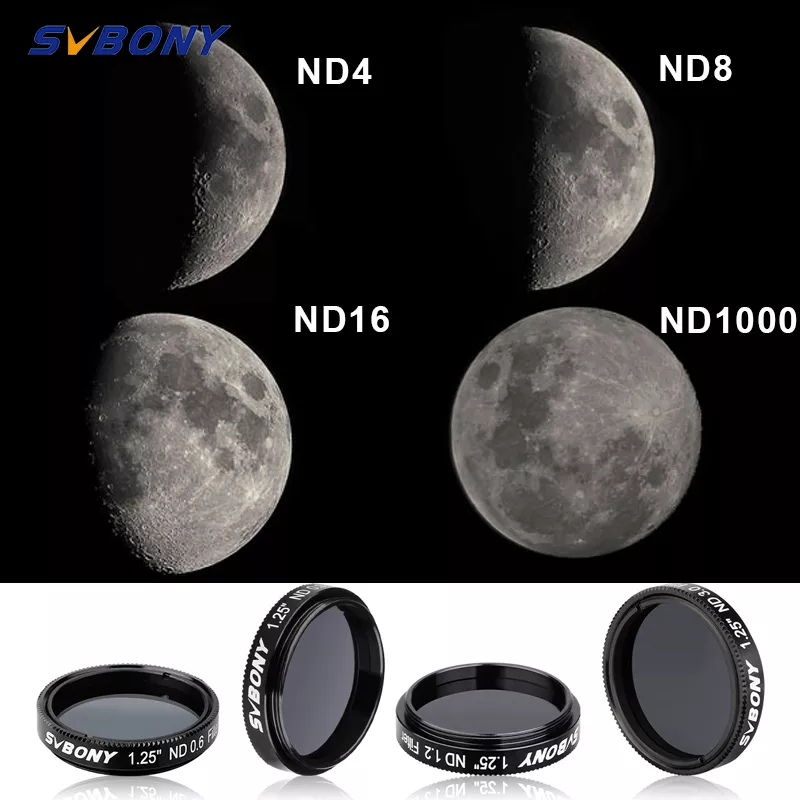The role of 1.25 inch ND Filter kit
Effect on image color
It will only play a role in controlling the amount of light, and will not affect the color reproduction and reflection effects of the scene.
Impact on clarity
Clarity is not affected by the amount of light, and it does not become worse as the amount of light reduction increases.
Rich functions
ND can reduce the amount of light entering the lens, so use it to shoot some super bright light sources, or use the large aperture of the lens in bright light
How to choose ND Filter?
Use ND4 filter with 25% transmission when Waxing Crescent Moon
Use ND8 filter with 12.5% transmission when Last and First Quarter Moon
Use ND16 filter with 6.25% transmission when Gibbous Moon
Use ND1000 filter with 0.10% transmission when Full Moon
Thread: Standard M28.5*0.6mm
Metal filter cell threads directly into the 1.25 inch barrel of your telescope eyepiece.
Laser lettering process;Fine rolling process ;High-quality metal frame ;Tightly connected
Universal Science:
1.Waxing Crescent Moon – As the Moon moves around the Earth, we get to see more and more of the illuminated half, and we say the Moon is waxing. At first we get a sliver of it, which grows as days go by. This phase is called the crescent moon. It’s very good effectto use the ND4 filter at this time
2.Last Quarter Moon – Three weeks after new, we again can see half of the illuminated part. This is usually called last quarter. Quarter Moon – A week after the new moon, when the Moon has completed about a quarter of its turn around the Earth, we can see half of the illuminated part; that is, a quarter of the Moon. This is the first quarter phase. It’s very good effect to use the ND8 filter In this two time period
3.Gibbous Moon – From now on, until it becomes new again, the illuminated part of the Moon that we can see decreases, and we say it’s waning. The first week after full, it is called waning gibbous. It’s very good effect to use the ND16 filter at this time
4.Full Moon – Two weeks after the new moon, the moon is now halfway through its revolution, and now the illuminated half coincides with the one facing the Earth, so that we can see a full disk: we have a full moon. It’s very good effect to use the ND1000 filter at this time

















